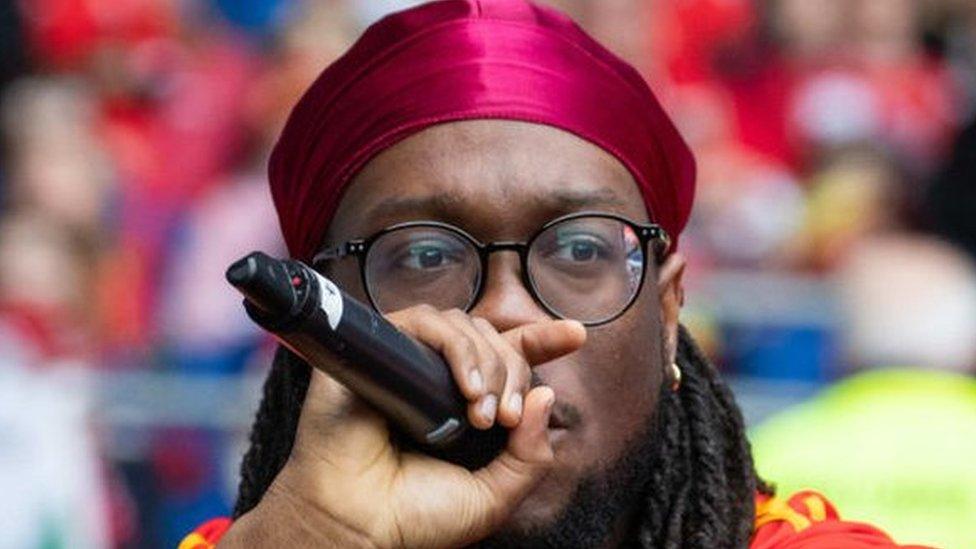Welsh language: Is mixing with English causing 'erosion'?
- Published

One group claims bilingualism is a "threat" to Welsh after S4C said at the National Eisteddfod it will make "no apologies" for featuring more English
A campaign group has claimed the Welsh language and identity are being "eroded" by the use of English.
It follows Welsh language broadcaster S4C insisting it would make "no apologies" for including more English language in its output.
Ieuan Wyn, of campaign group Cylch yr Iaith, said bilingualism was "always a threat" for a minority language.
However, sociolinguist Mercedes Durham has said it is "natural" for a language to adapt if it is to be preserved.
Mr Wyn said he believed Welsh speakers using English words often did so "unconsciously" due to the amount of English media they experienced.
"There is so much exposure to the English language on the media and that itself is a threat... we feel the pressure is so much now with the Anglo-American popular culture, it's drowning us," he said.
"We have to we have to stop that kind of erosion, what is called the 'language shift', that is our responsibility."
What do people make of S4C including more English content?
Mr Wyn called it a "very, very difficult and very painful time" for those living in the "natural and organic" Welsh-language communities.
"If we lose the language, then we'll be losing our basic identity as a people and any sense of Welshness will be eroded," he said.
Prof Durham, of Cardiff University, said the only way to achieve Wales' goal of reaching one million Welsh speakers by 2050 was get people who had never spoken the language before to pick it up.
She added the feeling Welsh needs to be spoken "a particular way" could deter new speakers from feeling confident.
"It means that people who have learned it aren't necessarily confident, or they're afraid to use it, because they might make a mistake.
"That seems like a shame sometimes, because the more you practise it, the better it will be."
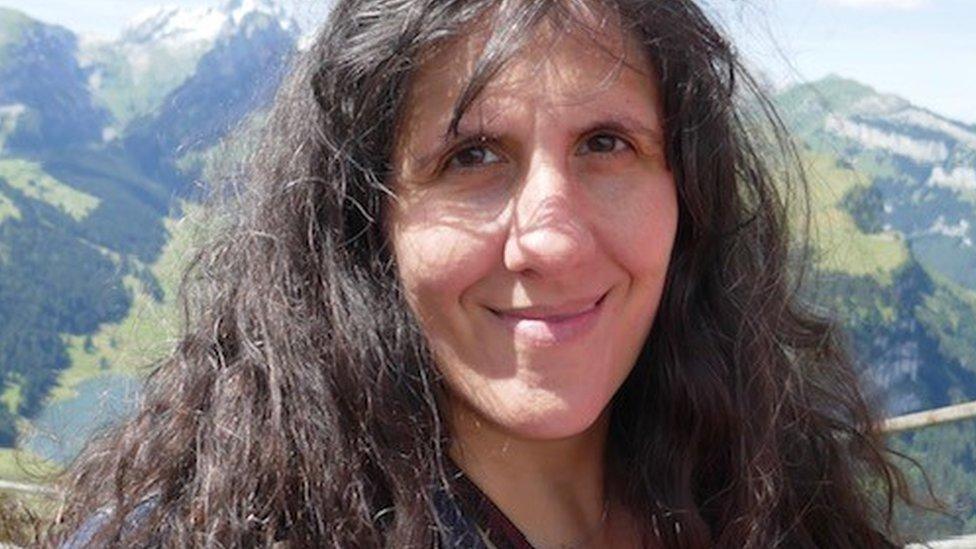
Prof Mercedes Durham says there is no "better" way to speak a language
Prof Durham added: "People speak languages lots of different ways and there's not necessarily one that's better than another.
"If you want to preserve Welsh, and make sure more people use it, it's natural that it will have changes."
Earlier this year, bilingual rapper Sage Todz announced he would not be performing at this year's National Eisteddfod because there are English lyrics in his songs, as well as Welsh. The Eisteddfod has a Welsh-language only policy.
"He uses Welsh and English in his songs and he mixes them... in some ways, that is part of his identity," said Prof Durham.
"And for some people it may be that mixing the languages is using Welsh. So with any luck there'll be a place for that as well."
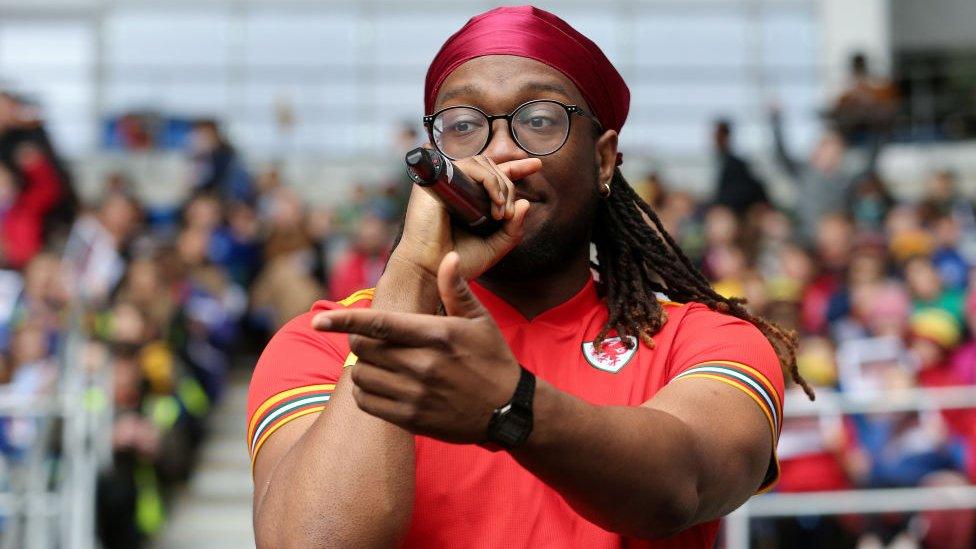
Sage Todz wrote that his songs are "finished products, not subject to change" after announcing he would not perform at the Eisteddfod
Robat Idris, chairman of Welsh language pressure group Cymdeithas yr Iaith, has said the Welsh language belongs to "everyone in Wales".
"We would like that anyone who doesn't currently speak Welsh to be on a journey to speak it to the best of their ability," he said.
"There isn't just one type or standard of Welsh, just as there is no one type of English.
"In order for a language to thrive it must maintain a range of demographic speakership that may from time to time adopt English words."
On S4C's decision to include more English language in its output, Mr Idris added: "There is no shortage of English-language programmes, and it is not the role of S4C - the only Welsh-language channel we have - to provide more."
Sara Peacock, S4C's lead on Welsh language strategy, said at the National Eisteddfod: "It is important to us that the whole of Wales is seen and heard on S4C.
"We try hard to ensure that every form of Welsh spoken in the country is reflected on our programmes in one way or the other.
"We also try to help our communities and encourage people to learn Welsh and go out and speak Welsh in our communities."

MYFANWY HAYCOCK: Jenni is on a mission to revive the legacy
ALL THINGS CONSIDERED: Oppenheimer and the Bomb

Related topics
- Published9 August 2023
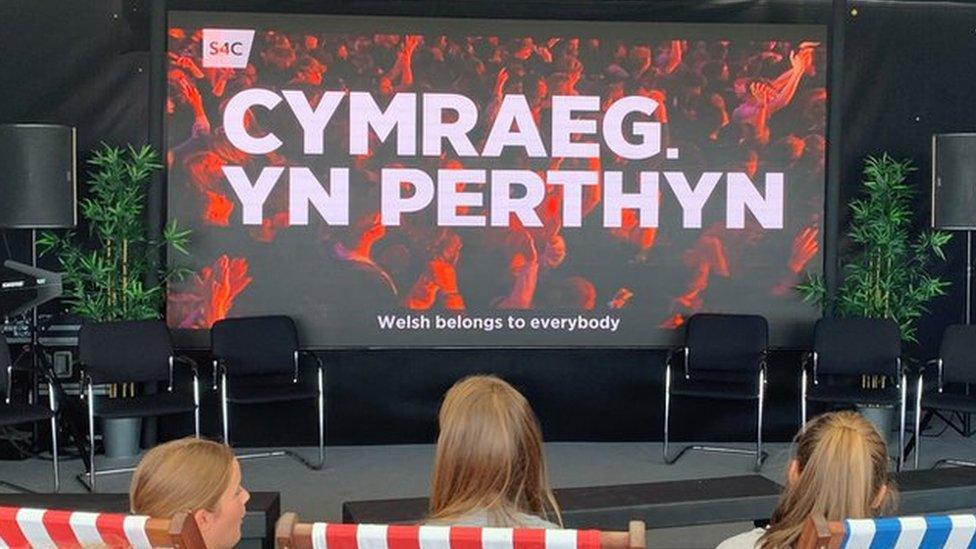
- Published4 August 2023
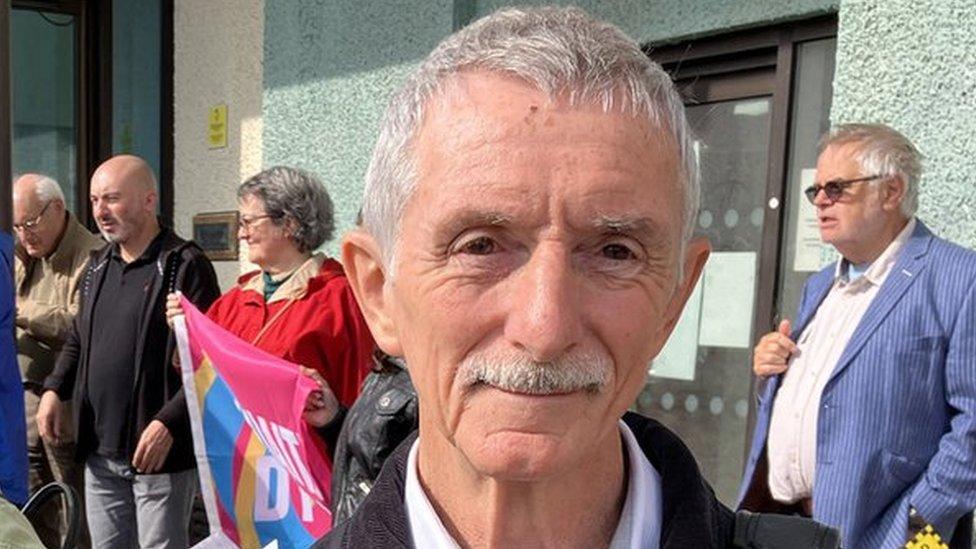
- Published9 June 2023
